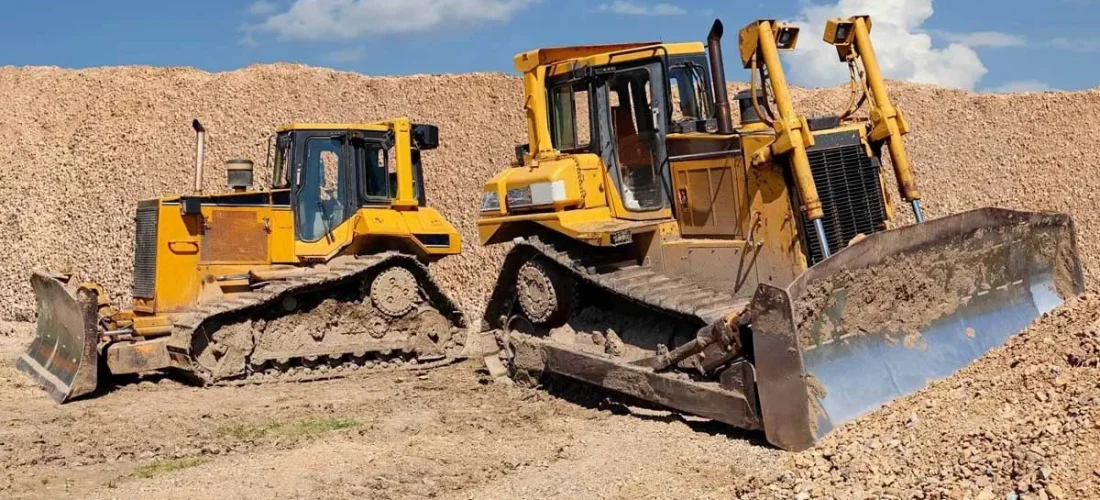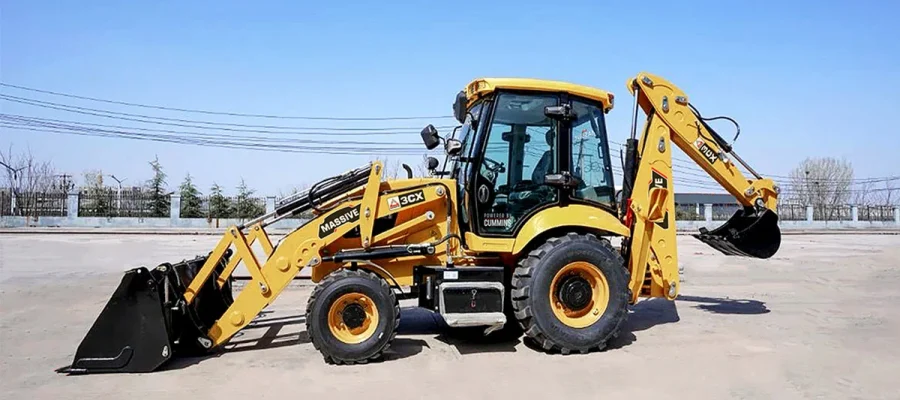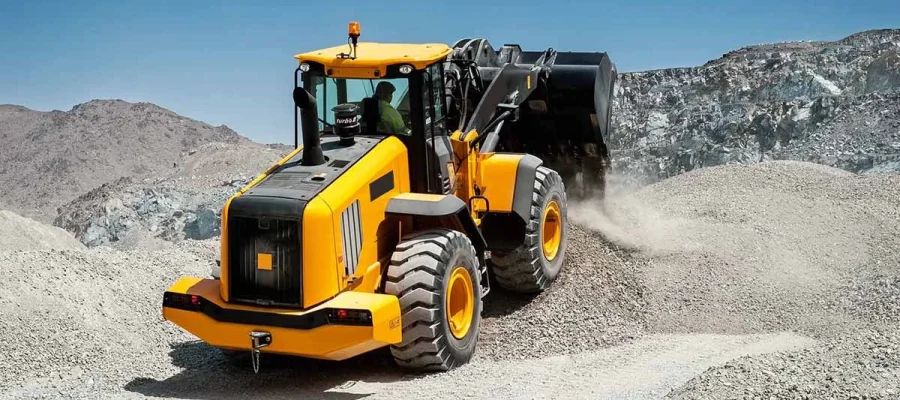
Ghana’s construction and mining industries are experiencing unprecedented growth, with bulldozers playing a crucial role in infrastructure development across the country. From road construction projects in Accra to mining operations in the Ashanti Region, these powerful machines are reshaping Ghana’s landscape. However, with great power comes great responsibility—operating bulldozers safely requires comprehensive knowledge, proper training, and strict adherence to safety protocols.
Whether you’re a seasoned operator or considering purchasing bulldozers for sale in Ghana, understanding safety fundamentals can prevent accidents, protect lives, and ensure project success. The challenging terrain and varying weather conditions across Ghana make safety considerations even more critical for equipment operators.
This comprehensive guide covers essential safety practices that every bulldozer operator should follow when working on Ghana’s diverse worksites, from the coastal plains to the northern savannas.
Pre-Operation Safety Checks
Before starting any bulldozer, conducting thorough pre-operation inspections is non-negotiable. These checks can identify potential mechanical issues that could lead to accidents or costly breakdowns.
Daily Inspection Routine
Start by examining the bulldozer’s exterior for visible damage, loose bolts, or hydraulic fluid leaks. Check tyre condition and track tension if operating a tracked bulldozer. Inspect the blade, ripper, and other attachments for wear or damage that could affect performance.
Engine compartment inspection should include checking oil levels, coolant levels, and air filter condition. Ghana’s dusty conditions, particularly during the harmattan season, can quickly clog air filters and affect engine performance.
Safety Equipment Verification
Ensure all safety equipment is functional before operation. This includes seat belts, ROPS (Roll Over Protective Structure), backup alarms, and warning lights. Test the horn and emergency stop systems to verify they’re working correctly.
Operator Training and Certification
Proper training forms the foundation of safe bulldozer operation. In Ghana’s rapidly developing construction sector, investing in comprehensive operator training pays dividends through reduced accidents and improved productivity.
Understanding Local Conditions
Ghana’s diverse geography presents unique challenges for bulldozer operators. Coastal areas may have sandy, unstable soils that require different operating techniques compared to the rocky terrain found in the northern regions. Training should address these regional variations.
Seasonal considerations are equally important. The rainy season can transform stable ground into treacherous mud, while the dry season brings visibility challenges due to dust clouds.
Ongoing Skills Development
Technology in machinery in Ghana continues advancing, with newer bulldozers featuring sophisticated control systems and safety features. Regular training updates ensure operators can maximise these safety enhancements while maintaining proficiency with older equipment still common on many worksites.
Site-Specific Safety Protocols
Every worksite in Ghana presents unique hazards that require customised safety approaches. Urban construction sites in cities like Kumasi or Tamale have different risks compared to rural mining operations.
Hazard Assessment
Before beginning work, conduct comprehensive site hazard assessments. Identify underground utilities, overhead power lines, unstable ground conditions, and proximity to public areas. Many accidents occur because operators aren’t aware of site-specific dangers.
Document all identified hazards and ensure every team member understands the risks and mitigation strategies. This is particularly important on projects involving multiple contractors or international workers who may be unfamiliar with local conditions.
Communication Systems
Establish clear communication protocols between bulldozer operators and ground personnel. Hand signals should be standardised and understood by all team members. Two-way radios provide reliable communication, especially important when working in noisy environments or over large areas.
Weather and Environmental Considerations
Ghana’s tropical climate presents unique challenges for heavy machinery operation that require specific safety measures.
Rainy Season Precautions
During Ghana’s rainy season (typically May to October), soil conditions can change rapidly. What appears to be solid ground in the morning may become unstable mud by afternoon. Operators should reduce speed and avoid steep slopes when conditions become slippery.
Visibility can be severely reduced during heavy downpours. If visibility drops below safe levels, operations should be suspended until conditions improve.
Dry Season Challenges
The harmattan winds bring dust that can reduce visibility and affect equipment performance. More frequent air filter changes become necessary, and operators should be extra cautious when visibility is compromised by dust clouds.
High temperatures during the dry season require more frequent cooling system checks and ensure adequate hydration for operators.
Equipment-Specific Safety Features
Modern bulldozers for sale in Ghana often include advanced safety features that operators should understand and utilise properly.
ROPS and FOPS Systems
Roll-over protective Structures (ROPS) and Falling Object Protective Structures (FOPS) are critical safety systems. Never modify or remove these protective structures, as they can mean the difference between life and death in an accident.
Backup Systems and Alarms
Modern bulldozers feature backup cameras and proximity sensors that alert operators to obstacles behind the machine. However, these systems supplement, not replace, proper spotting procedures and situational awareness.
Emergency Response Procedures
Despite best prevention efforts, emergencies can occur. Having well-rehearsed emergency response procedures can minimise injury severity and property damage.
Fire Safety
Bulldozers carry significant fuel loads and operate in environments with potential ignition sources. Ensure fire extinguishers are properly mounted and regularly serviced. Operators should know how to shut down the machine quickly and evacuate safely in case of fire.
Medical Emergency Response
Remote work sites may be far from medical facilities. Establish clear procedures for medical emergencies, including evacuation routes and communication protocols with emergency services.
Maintenance and Safety Integration
Regular maintenance isn’t just about equipment longevity—it’s a critical safety function. The well-maintained machinery in Ghana operates more predictably and safely.
Preventive Maintenance Schedules
Follow manufacturer maintenance schedules religiously, adjusting for Ghana’s challenging operating conditions. Dusty environments may require more frequent filter changes, while high-humidity areas might need additional attention to electrical systems.
Documentation and Records
Maintain detailed maintenance and inspection records. These documents can identify developing problems before they become safety hazards and provide valuable information if accidents occur.
Building a Safety Culture
Creating lasting safety improvements requires more than just rules and procedures—it requires building a culture where safety is valued by everyone on the worksite.
Safety starts with leadership commitment and flows through every level of the organisation. When workers see that safety is genuinely prioritised over production pressure, they’re more likely to follow safety protocols consistently.
Regular safety meetings, incident reporting systems, and recognition for safe practices all contribute to a positive safety culture. Remember that in Ghana’s construction industry, reputation matters—companies known for strong safety records attract better workers and more clients.
Investing in proper safety training, maintaining equipment correctly, and following established protocols protects lives and contributes to project success. Whether you’re operating a Massive MSBU 160 Bulldozer or smaller machinery, these safety fundamentals remain constant across Ghana’s diverse worksites.
Safe operation isn’t just about avoiding accidents—it’s about creating an environment where workers can perform their best while returning home safely to their families each day.


